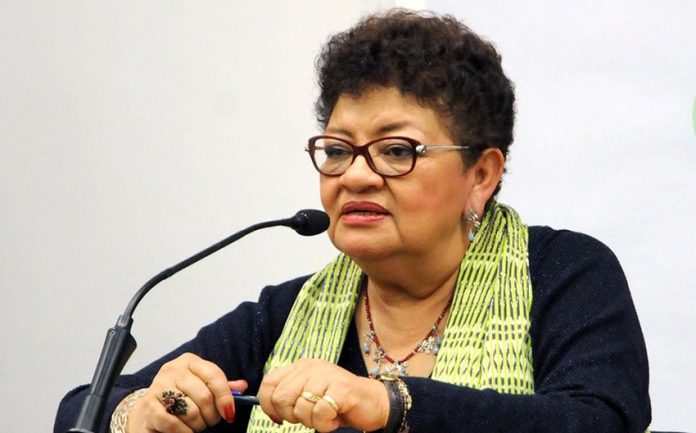Violence in Mexico City has reached “crisis” levels, the capital’s attorney general declared yesterday, while revealing that murder investigations have been deemed ineffective by a team of French homicide investigators.
Speaking at an event to mark the conclusion of a training course offered to Mexico City police by French forensics experts, Ernestina Godoy said, “we have a crisis situation in the city in terms of violence that is reflected in the number of intentional homicides” that are being recorded day by day.
There have been several incidents of gun violence on the streets of the capital in recent weeks including an attack in the notorious neighborhood of Tepito last Monday that left three people dead and another the next day in the trendy Condesa district that killed two.
In the context of rising murder numbers and low prosecution rates, a French homicide investigation unit traveled to the capital to meet with investigators, assess their work practices and provide them with forensic training.
After a two-month visit, Godoy said, the French team presented authorities with a damning four-page report about the homicide investigation processes followed by Mexico City officials.
It was determined that the methodology used by investigators to conduct murder probes “didn’t help at all” to solve the crimes, the attorney general said.
“That’s why our rate of solving homicides is so low,” she added.
As part of a strategy to remedy the situation, Godoy inaugurated yesterday five new investigative units made up of 193 detectives who were trained by French police.
The units will be based in the boroughs of Iztapalapa, Tlalpan, Gustavo A. Madero, Cuauhtémoc and Benito Juárez.
The attorney general’s declaration of a security “crisis” in Mexico City follows a warning from the United States to its citizens about dangers in the capital.
“There is a serious risk from crime in Mexico City,” the Overseas Security Advisory Council (OSAC) said in a report published this month.
“The general crime rate in Mexico City is above the U.S. national average, and crime varies widely. The low rate of criminal convictions contributes to the high rate of crime. Although there is no pattern of criminals specifically targeting foreign or U.S. businesses/personnel, criminals will target anyone perceived to be lucrative and vulnerable,” the report continued.
“Criminals select victims based on an appearance of prosperity, vulnerability, or a lack of awareness. Armed robbery, kidnapping, car theft, credit card fraud, and various forms of residential/street crime are daily concerns.”
Statistics published last week showed that robberies of businesses in the capital increased 54% to an average of 70 cases per day between December and March, the first four months of the new Mexico City government.
Mayor Claudia Sheinbaum predicted yesterday that crime rates will begin to fall in June or July once a new crime surveillance system is in place and the city’s police force takes possession of new police cars.
“. . . We’re working hard; I devote two hours a day, Monday to Sunday, to improving security conditions. We have a project, a program and the desire [to change the security situation],” she said.
However, Sheinbaum said last month that Mexico City is 10,000 police officers short of being able to effectively guarantee its citizens’ safety.
The worsening security situation in the capital is reflective of a wider phenomenon in Mexico.
A record 9,549 homicide cases were recorded across the country in the first four months of 2019, according to the National Public Security System (SNSP), a 3% increase compared to the same period last year.
Colima, Baja California, Chihuahua and Guanajuato recorded the highest per-capita murder rates.
Source: Milenio (sp), El Universal (sp)
